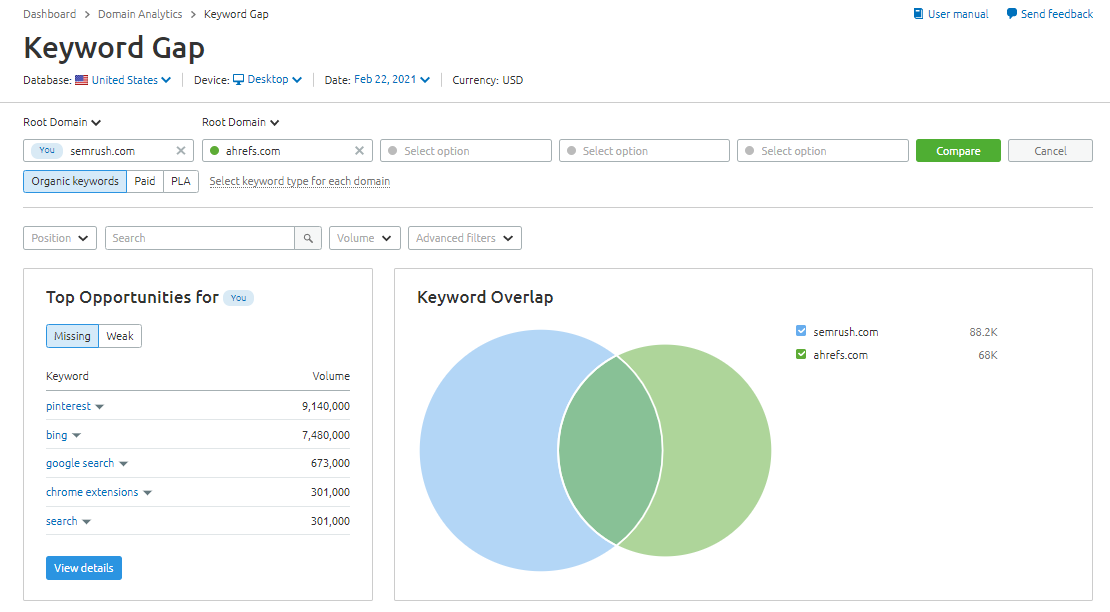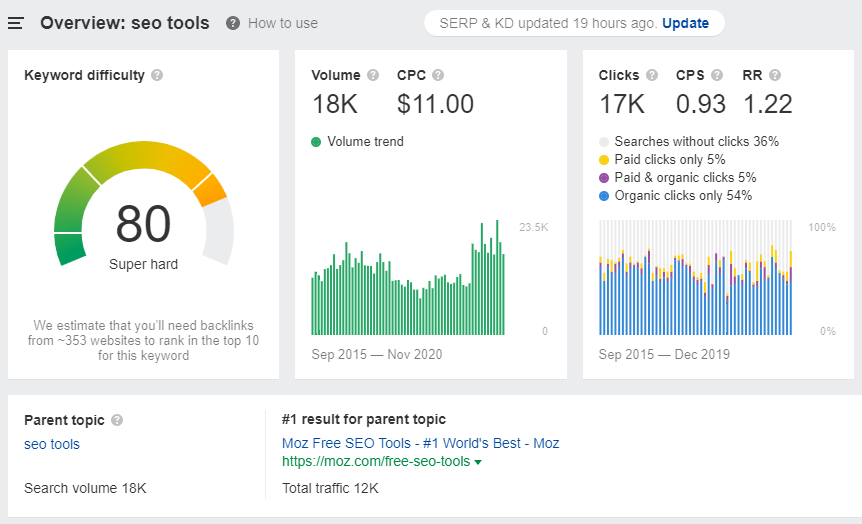
Home > SaaS Keyword Research To Rank Higher in the SERPs
Table of Contents
ToggleKeywords are what drive traffic for your SaaS. These are the words potential users type in a search engine to explain what information they need, which means choosing and ranking for the right keywords will have a crucial impact on your website traffic and lead generation. Additionally, 93% of the time an online session is initiated with a keyword search reaffirming the importance of a solid keyword ranking strategy. But how do you build one?
Earlier, Google search was a form of hit and trial session, where the user would enter relevant words or phrases and skim through the search results to find what they were looking for. But now Google has its own RankBrain among several other algorithm elements. This helps the popular search engine analyze even the most complex query and match it with the right content.
With Google’s Hummingbird algorithm, it is now able to understand words and their relationships and match them with the possible intent behind the search. This helps it display relevant search results. However, search engines still use keywords to determine what a page is about, only that now they have a deeper understanding of what a specific keyword is about. It has now become more interested in why we are searching rather than what.
SEO keywords are words or phrases that describe specific information. For searchers, these are words (also referred to as search queries) they use to find a piece of information they need. For a SaaS marketer, these define your content in nutshell. And when the searcher’s intent matches your content’s keyword your page appears in the search result listings.
For SaaS marketers and writers, you’ll need to target 2 types of keywords:
Well, there isn’t a specific process that you can follow for SaaS keyword research but there are several ways to find relevant keywords for your SaaS website. Here’s what you need to do:
Ask yourself, what topics are relevant to your SaaS product? “SEO Software” or “Scheduling Software” or whatever type of software you are selling. You need to identify the key topics that matter to your audience.
Do you know where you can get most of the keywords from? By Brainstorming.
All you need to do is try to get into a user’s shoes and think, what would be your choice of words to search for your product?
Know your product in and out and try to describe it in plain English.
This will give you a good head start.
Seed keywords are the foundation of the actual keywords. They are more like the initial stage of finding specific phrases or queries to target with the content. Jot down keywords, keyword variants, synonyms, etc. that you’d enter (as a customer) in a search engine to find your product or service.
Once you have a couple of seed keywords or at least a primary competitor in mind, check the keywords they are currently ranking for using Ahrefs or SEMrush. One of the easiest and quickest ways to get started with keyword research is spying on your competitors and leveraging their data for your benefit.
Additionally, an amazing keyword strategy for SaaS marketers is to use your competitors as a keyword:
“Competitorname + alternatives”
If the pricing of your software is reasonable and it has additional features, this trick will work wonders. In fact, users looking for alternatives for a particular software are right in the consideration phase and ready to buy since they have already researched a lot.
Apart from targeting “head terms” or “money terms”, make sure you also add long-tail keyword variants.
Enter any of these keywords in Google search, but don’t enter, just let Autosuggest work its magic. It will display a number of keyword variants for your search.

For more suggestions you can also use Keywordtool.io or Ahrefs, all you need to do is add these keywords in the Keyword Explorer (in case of Ahrefs) and a list of keyword variants, related questions, etc will be generated at the bottom of the page.
Ranking for voice search is another key strategy for SaaS companies since voice searching is becoming more accurate with each passing year.
To get started with this, try to search your business and your competitors as your customer would – with a voice search. Consider:
Understand searchers’ intent and craft content that includes answers to questions your target audience might have.

Search for “Money” Keywords or keywords that will help you generate leads. These are generally high volume, high competition keywords that depict what you offer, either at a topic or category level.
Take the term “CRM Software” which is considered as a “Money” or Bottom-of-the-funnel keyword, so if you own a CRM software, include the below-mentioned keywords in your content and try to answer as many questions as you can.

You can use the keyword explorer (Ahrefs) to conduct keyword research around your products and services and identify your head terms.

To find relevant question keywords, drop your search in Use Answer The Public to find relevant questions and then try to answer them. You can leverage this platform and rank for the featured snippets too.
Now that you’ve spent time preparing a list of keywords, you will now want to know if these keywords will be profitable and helpful in driving potential traffic to your website.
The ideal keywords for SaaS are the ones that:
Head over to the Keyword Explorer in Ahrefs or Keyword Overview in SEMrush and enter the keyword you intend to rank for – this will give you insights into how hard it is to rank on Page 1 for that particular keyword.

As a newbie in the digital world, you’ll struggle a lot with ranking for competitive keywords, so keep looking for less competitive keywords.
Once you have a list of target keywords and keyword variants, map them with the right web pages. A lot of research and a better understanding of your web pages is what you need to map keywords. Make sure that each topic is mapped with the relevant primary and secondary keywords to build your content strategy.
Also, make sure that the keywords you choose for different web pages mirror your site’s structure.
Some keywords might have less than 20 searches per month. Many companies tend to ignore them, but these keywords (with commercial intent) might deliver additional 2-3 leads for your SaaS services. The above data can be obtained using the following tools:
With this, you’re all set to optimize your SaaS website, create new content and increase your website rankings, traffic, and signups.
Shivam Kumar, the Senior SEO Analyst at FirstPrinciples Growth Advisory, brings 6+ years of expertise in SEO and Digital Marketing. With a solid foundation in Internet Marketing, Website Optimization, SEO, SEM, and Social Media Marketing, Shivam is known for his commitment and versatile skill set, including proficiency in Video Editing. ...